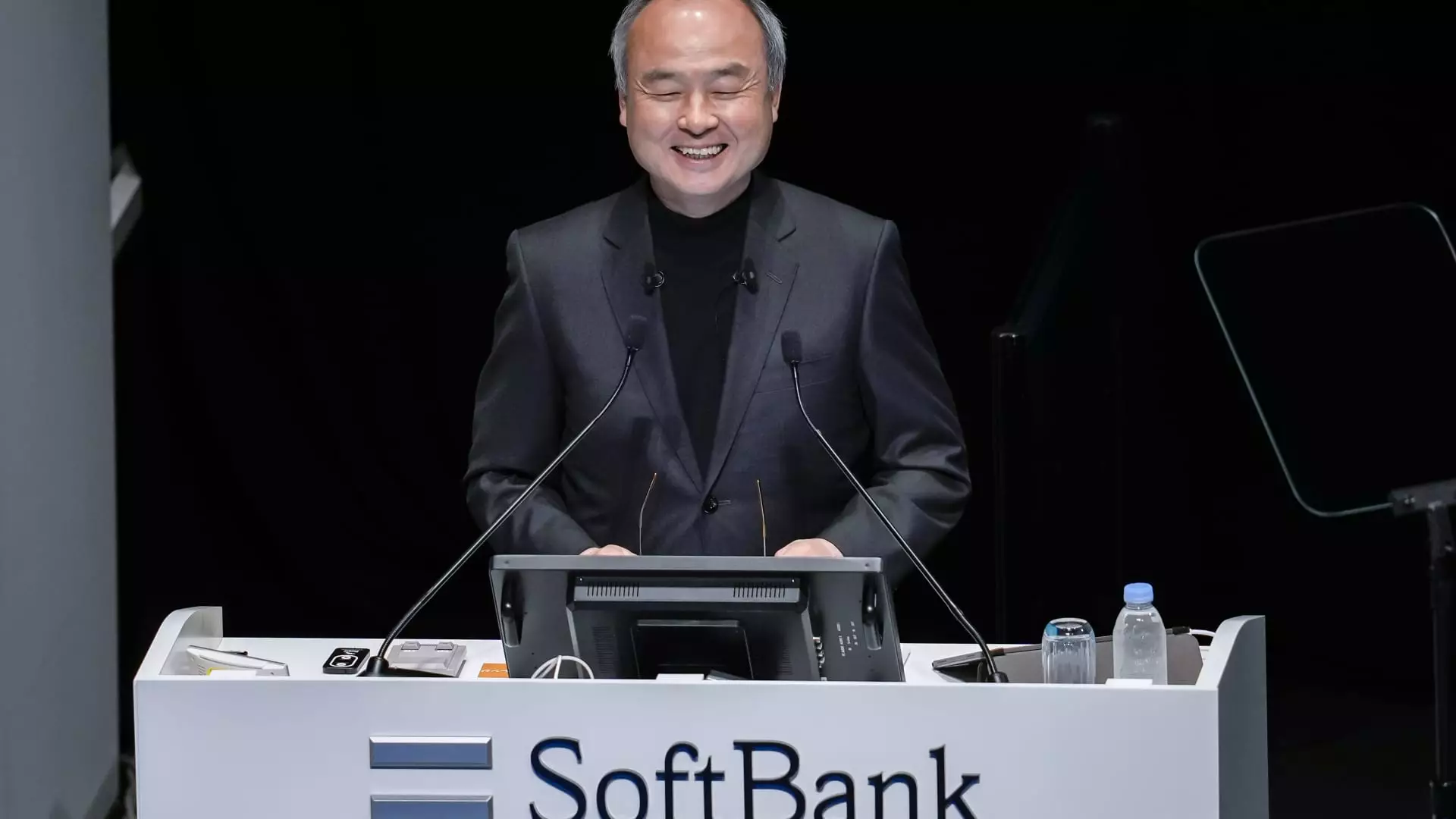In the rapidly evolving world of technology, very few companies demonstrate the level of audacity SoftBank is exhibiting with its aggressive investment in artificial intelligence (AI). CEO Masayoshi Son’s recent declaration that SoftBank is “all in” on OpenAI underscores a bold strategy aimed at securing a dominant foothold in what he envisions as the era of artificial superintelligence (ASI)—an intelligence potentially 10,000 times smarter than humans. Despite OpenAI’s current unlisted status and lack of profitability, SoftBank is committing approximately $33.2 billion (4.8 trillion yen) to the company’s future. This is a gamble casting aside conventional risk-averse strategies, reflecting Son’s deep conviction not just in AI’s potential, but in OpenAI specifically.
The High-Stakes Dance of AI Investments
Son’s confidence in OpenAI’s trajectory is compelling, yet the backdrop reveals an uneven playing field. Before Microsoft clinched its now-iconic deal to become OpenAI’s exclusive cloud provider, Son had an opportunity to invest $10 billion pre-2019—an opportunity he regrets being outmaneuvered in. Microsoft’s dominance in the cloud infrastructure domain and extensive resources made them a compelling partner for Altman and OpenAI at the time. However, recent tensions and OpenAI’s shift away from Microsoft’s exclusivity hint at a fractured relationship. Son’s assertion that Altman perhaps should have chosen SoftBank as the partner — spotlighting SoftBank’s growing strength and ambition today — reveals a complex competitive landscape where strategic alliances can rapidly shift.
Strategic Integration and Market Influence
What pushes this story beyond a simple investment news piece is SoftBank’s broader ambition. The company isn’t just placing bets on a single AI endeavor; it’s constructing an ecosystem. The acquisition of British chip designer Arm and U.S.-based Ampere, coupled with ongoing AI investments, signal SoftBank’s serious intent to control both the software and hardware layers necessary for realizing ASI. By positioning itself as the “organizer of the industry in the artificial superintelligence era,” SoftBank aims to go beyond a passive investor role to become an orchestrator that shapes AI’s development trajectory. This vertical integration strategy is shrewd, positioning SoftBank not only as a shareholder but also as a critical infrastructure provider whose influence could define AI’s future.
Risks Beneath the Surface of Bold Ambitions
Even with such promise, SoftBank’s commitment to OpenAI is far from risk-free. The company’s willingness to pour tens of billions of dollars into an unprofitable and unlisted tech entity reveals remarkable risk tolerance—and arguably a degree of hubris. The recent willingness to potentially reduce investments if OpenAI does not become a for-profit entity by the end of the year exposes the precarious balance between idealistic visions of AI’s future and practical financial considerations. Moreover, Son’s emphasis on bravery in investments underlines the inherent uncertainty—Artificial Intelligence, especially ASI, remains an uncharted frontier with no guaranteed returns.
Shaping the Next Decade of AI
What is undeniably impressive about SoftBank’s approach is its long-term horizon. The company’s vision extends a decade ahead, aiming to become the leading platform provider for artificial superintelligence. This long game extends beyond merely following market trends; it recognizes AI’s transformative societal impact and positions SoftBank at the heart of this revolution. The tantalizing prospect of a $1 trillion industrial complex in the United States further highlights the scale of ambition—not merely financial success, but creating an industrial ecosystem conducive to technological innovation.
Masayoshi Son’s vision is not just about owning stakes in AI companies, but about molding the very DNA of the upcoming superintelligence era. While this vision brims with optimism and audacity, it equally carries the heavy burdens of risk, complexity, and uncertainty inherent in pioneering revolutionary technology. Whether SoftBank succeeds in building the future it imagines is still an open question, but the company’s willingness to be an unyielding force in AI development already marks it as one of the era’s most influential players.


Leave a Reply